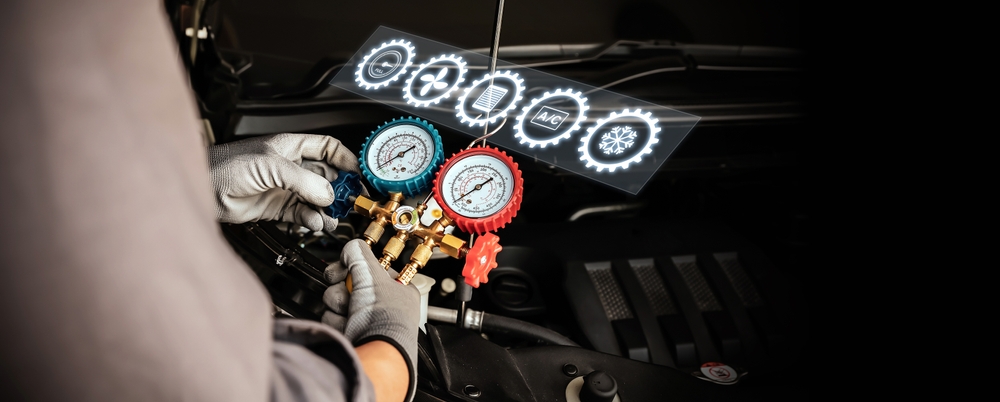Automobile Mechanic Training: How to Learn Essential Skills and Prepare for a Career in Automotive Repair
Automobile mechanic training programs provide the knowledge and hands-on experience needed to start a career in automotive repair. This article explains what to expect from mechanic training, including core skills, certification options, and practical workshop experience. Learn how to choose the right program, understand the basics of vehicle diagnostics and maintenance, and explore career opportunities in the automotive industry. Whether you are new to the field or looking to advance your skills, mechanic training can help you build a strong foundation for success.

What are the core skills for automobile mechanics?
Automobile mechanics must possess a diverse set of skills to diagnose and repair various vehicle issues. These core competencies include:
- Engine diagnostics and repair
- Electrical systems troubleshooting
- Brake system maintenance and repair
- Suspension and steering system knowledge
- Transmission service and repair
- Computer systems and onboard diagnostics expertise
Developing these skills requires a combination of theoretical knowledge and practical experience. Successful mechanics also need strong problem-solving abilities, attention to detail, and excellent customer service skills to thrive in the automotive industry.
Which certification and training options are available?
Several certification and training options exist for aspiring automobile mechanics:
- Vocational Schools: Offer comprehensive programs covering all aspects of automotive repair.
- Community Colleges: Provide associate degree programs in automotive technology.
- Manufacturer-Specific Training: Some automakers offer specialized training for their vehicles.
- Apprenticeships: Combine on-the-job training with classroom instruction.
- ASE Certification: The National Institute for Automotive Service Excellence offers widely recognized certifications.
- Online Courses: Provide flexibility for those seeking to supplement their knowledge.
Choosing the right program depends on your career goals, budget, and time constraints. Research each option thoroughly to find the best fit for your needs.
How important is hands-on workshop experience?
Hands-on workshop experience is crucial for developing practical skills and confidence in automotive repair. During training, students typically spend significant time in workshops, working on real vehicles and simulating various repair scenarios. This practical experience helps:
- Reinforce theoretical concepts learned in the classroom
- Develop proficiency with tools and diagnostic equipment
- Learn to identify and solve common automotive problems
- Gain experience working in a team environment
- Build confidence in handling different makes and models of vehicles
Many programs partner with local repair shops or dealerships to provide internship opportunities, further enhancing students’ real-world experience.
What should you know about vehicle diagnostics and maintenance?
Vehicle diagnostics and maintenance are fundamental aspects of an automobile mechanic’s job. Modern vehicles rely heavily on computerized systems, making diagnostic skills essential. Key areas to focus on include:
- Onboard Diagnostic (OBD) systems
- Scan tool operation and interpretation
- Electrical system troubleshooting
- Preventive maintenance schedules
- Fluid checks and replacements
- Tire maintenance and alignment
Understanding these aspects helps mechanics quickly identify issues and perform necessary maintenance to keep vehicles running smoothly.
What career opportunities exist in automotive repair?
The automotive repair industry offers diverse career opportunities for skilled mechanics. Some potential career paths include:
- General Automotive Technician
- Specialty Technician (e.g., transmission, electrical systems)
- Diesel Mechanic
- Fleet Maintenance Technician
- Automotive Service Manager
- Mobile Mechanic
- Technical Trainer or Instructor
As technology advances, new opportunities emerge in areas such as hybrid and electric vehicle maintenance, advanced driver assistance systems (ADAS), and autonomous vehicle technology.
How much does automobile mechanic training cost?
The cost of automobile mechanic training varies widely depending on the type of program and institution. Here’s a comparison of typical training options and their associated costs:
| Training Option | Provider Type | Estimated Cost Range |
|---|---|---|
| Vocational School | Technical Institutes | $5,000 - $20,000 |
| Community College | Public Colleges | $5,000 - $15,000 per year |
| Manufacturer Training | Automakers (e.g., BMW, Toyota) | $100 - $1,000 per course |
| Apprenticeship | Various Organizations | $0 - $1,000 (often paid) |
| ASE Certification | ASE | $36 - $72 per test |
| Online Courses | E-learning Platforms | $50 - $500 per course |
Prices, rates, or cost estimates mentioned in this article are based on the latest available information but may change over time. Independent research is advised before making financial decisions.
Automobile mechanic training provides a solid foundation for a rewarding career in the automotive industry. By combining theoretical knowledge with hands-on experience and staying current with evolving technologies, aspiring mechanics can position themselves for success in this dynamic field.
The shared information of this article is up-to-date as of the publishing date. For more up-to-date information, please conduct your own research.




